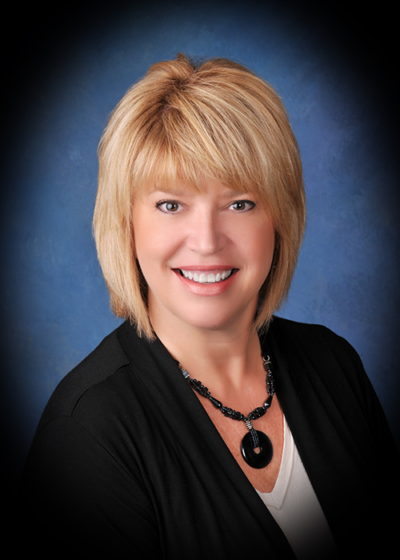Insights | Blogs

After many years of working in the retirement industry and speaking to not only those who are preparing for retirement, but also to their family, friends and allies, who may be developing safety concerns for their loved ones, I have been reminded of the old adage “It’s not what you say, but how you say it”.
Inter-generational communication can certainly have its challenges, regardless of what is being discussed. However, when that communication centers on major life changes, it can become even more difficult. What also becomes difficult is how our roles in relationships can change as we age. Our parents were always the ones in charge, the ones who carried the responsibilities, made the decisions, and made sure we were taken care of. Now, as we see their needs changing, we, as adult children, feel the inclination to take charge and be the responsible party that gets things done. Normally our parents aren’t too keen on that.
Adult children may experience push back from their parents and become frustrated with what seems to be a power struggle between the two generations. I found a great resource for those who are dealing with these kinds of changes in their lives. It’s a book called “How To Say It To Seniors” by David Solie and it is filled will some very valuable information.
In his book he brings up an interesting perspective that people don’t always consider. It deals with the stages of life development that everyone goes through. Throughout each developmental stage of life, there is one constant and that is the balance/struggle between dependence and independence. Mr. Solie points out that many times we may be much more tolerant of our children acting out, than of our parents acting out. He believes the reason for that is that we have all lived through childhood and have a better understanding of the paradigm or perception our children may be experiencing. However, there are no adult children out there who REALLY understand the paradigm or perception of their parents. Why? It’s because we have yet to live that long. We have never been there, or walked in those shoes, which could be (in some cases) 20 to 30 years older. Through the developmental stages in life, the struggle for balance between dependence and independence is always there, what changes are the goals we have in the forefront of our minds. When we are little, we want to be independent, yet we still get scared and may cower behind our mother’s leg for protection. When we are teenagers, we think we are independent, yet we still have to ask dad for the keys to the car, money for gas, and permission to stay out past our curfew. It is during the early adult years that a shift happens and we become more autonomous and actually are independent. Ironically, that is when we start to search for someone to connect with and start our own family with, and actually become inter-dependent with them. Building the foundation for our lives becomes most important including professional accomplishments, academic achievements, growing our families, building financial security – basically taking care of business and getting things done! That’s the mindset adult children are in, but for their parents, those in their 70s, 80s or 90s, their mindsets have shifted. That shift is to a place where the most important things driving them are twofold, first to make sure they do everything within their power to secure their legacy, so that no one can change it after they’re gone, and secondarily, to maintain control over every aspect of their lives.
As you can imagine, it’s pretty scary to be in a time of your life when you feel control slipping away such as control over changes that may be happening in your physical or mental health, which affect the way you live your daily life. Maybe it’s having a fear of falling, or no longer feeling comfortable with the idea of climbing stairs, or driving a car, or even venturing out alone. These are little things that actually play a big part in how we live our lives. To add to that, there may be past experiences that cause them to really fear the whole idea of aging such as remembering what their parents or grandparents may have gone through. Memories like that are hard to shake.
From my experience, seniors seem to choose one of two paths. In the first path, they choose to embrace the idea of successful aging by putting themselves into situations where they can stay engaged in things that have always brought them pleasure while they are still independent enough to make a good decision. Sadly, in the second path, they choose to do nothing in the hope that things will remain the same. Choosing to not make a decision is, in fact, a decision. Unfortunately, life changes whether we are ready for it or not. Change is like death or taxes – it’s a constant.
As people age they will ALWAYS become more frail and need additional support, regardless of how healthy and active they keep themselves. Like the old saying “life happens while you are busy making other plans” – aging is much the same. At the center of successful aging is the idea of socialization. Staying connected to a sense of family, community, and those of our own generation who we share things in common with is more important than even exercise, or stopping smoking.
To learn more about this you can take time to view a Ted Talk by Susan Pinker, psychologist, author and social science columnist for The Wall Street Journal. It’s called “The secret to living longer may be your social life.”
Having a glimpse into the paradigm of an aging senior can help adult children have more fruitful conversations about planning for the future with them. In order for any transition to be successful, the senior needs to feel they have a say in the outcome and that they maintain control of the decision. If they are digging their heels in and are becoming inflexible to the ideas that are being suggested, it’s time to change your technique and try a different approach. Start conversations with them by asking more open-ended questions like “What do you think would be a good solution to…. (the concern)”. If they are of the mindset that they will stay put and nothing will change, then there may be a need to delve deeper into the plan. “What happens if …(this) happens?” “How do you plan to deal with…(this)?” Transferring the control back to them and then actually play out the realities of their solutions. Unfortunately, many times following their plan and allowing the eventual outcomes may be the only way for them to see the need for a change is necessary.
There are times when some seniors just choose to lay it in the laps of their adult children. When that happens, it is imperative that the adult children take a stand and make a point of including the senior in the decisions. Using buzz words like “I want you to be in control of your own destiny”. “Help me to make sure I understand what you want.” “If I make the wrong decision I will never forgive myself.”

About Brazos Towers:
Brazos Towers at Bayou Manor has been Houston’s most trusted non-profit retirement community since 1963. Here, seniors receive all the support services they might ever need: Independent Living, Assisted Living, Memory Care, Skilled Nursing and Rehabilitation. This environment focuses on experiencing the most freedom, interesting engagement and personal independence possible, regardless of one’s capabilities.
About the Author, Michelle Watkins:
As Retirement Counselor, Michelle helps seniors successfully navigate their choices by better understanding the differences between communities and the services they offer.
Contact her at 713-660-5033 to schedule your complimentary retirement planning consultation or email michelle.watkins@houstonretirement.org.







